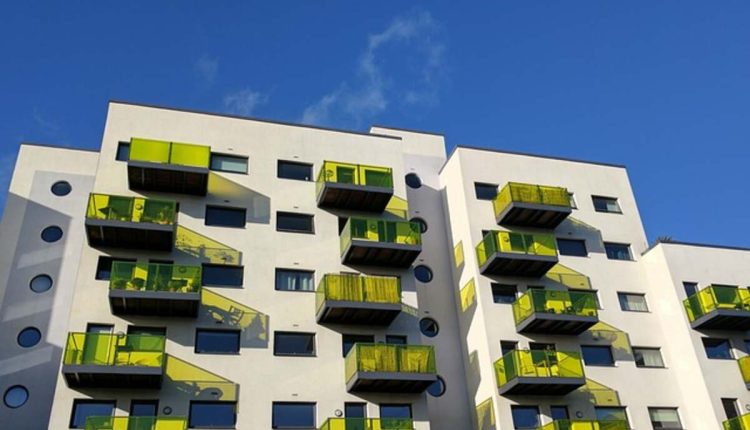There are various options if you are considering buying your new home in Malta. From historic properties to modern apartments, Malta boasts abundant real estate opportunities. The Amazing fact about invest in Malta’s real estate.
Before beginning your property search, hire both a notary and a lawyer with expertise in property law. Also, ensure you meet all requirements set by your mortgage lender.
Legal advice
Landing property abroad involves extensive paperwork, so obtaining legal advice is vital to making intelligent choices and saving money. Finding an experienced property negotiator like one in Malta who will listen carefully to your needs before helping find you your perfect property is the ideal way forward.
Malta boasts a diverse housing market that features new-built apartments, historic homes, terraced houses, maisonettes, and converted palazzos. Due to its rich historical legacy and central European location, Malta makes an attractive investment destination.
Foreign citizens looking to purchase real estate in Malta must be mindful of certain restrictions. Foreign nationals require an AIP (Acquisition of Immovable Property) permit before buying residential property there; however, those investing in Special Designated Areas (SDAs) are exempt from this rule.
SDAs (Serviced Apartment Development Areas) are business-class communities with luxurious amenities. Popular among expats, SDAs attract an eclectic clientele. Tigne Point in Sliema, for example, features a shopping mall, cafes, offices, and 385 apartments, plus a marina on Manoel Island – 385 flats are featured at Tigne Point alone! Investors in these properties pay a 20-year ground rent which could remain consistent or vary based on the property location.
Off-the-plan properties
When purchasing property in Malta, you must seek independent legal advice. Please avoid using the translator or lawyer recommended by your estate agent, as they could provide biased information. A better solution would be finding someone with experience buying real estate who speaks English and Maltese fluently.
Malta is a tourist and real estate investor favorite due to its strategic location, strong economy, and relaxed lifestyle. Many first-time homebuyers find the process expensive and complicated; luckily, there are ways you can save money when purchasing real estate here.
One way to lower the new property price in Malta is by purchasing an off-the-plan property. This means securing it through deposit or reservation fees before construction begins – although be wary that its outcome might differ from your expectations, and you could experience delays during construction.
Once again, when considering home ownership, it’s essential to consider costs. Local municipalities generally levy a ground rent tax between EUR40-250 annually for homeowners. Furthermore, homeowners must purchase homeowner’s insurance and utility bills that average around EUR95 annually per 85 m2 apartment.
Ground rent
Malta, like anywhere in the world, offers property buyers numerous considerations when making an acquisition decision. These may include taxes, regulations, and permits. Fortunately, they tend to be straightforward.
When purchasing a new home in Malta, a wide variety of types are available for consideration. Options range from stylish new-build apartments and townhouses to historic properties and converted palazzos – most residential properties in densely populated areas like Sliema or St Julian’s.
Villas and other more significant properties are often available in rural areas, offering amenities like swimming pools and gardens close to schools and public transport stops.
As part of buying a property in Malta, an annual ground rent (emphyteusis) fee must be paid on the land where your house stands. This cost typically remains consistent year over year but may change according to your contract’s schedule; to redeem it entirely, you will need to pay 20 times its value back to the seller.
As part of your purchase agreement, you will also need to make deposits and stamp duty payments of 5% of the purchase price, apply for bank loans if necessary, and have your new home certified by a notary so they can verify its legitimacy.
Special Designated Areas
Malta allows foreigners to purchase properties in certain designated zones without needing a permit, with most regions featuring luxury developments that attract high-end investors from around the globe. Furthermore, these areas often boast seafront views or marina facilities to facilitate foreign buyers further.
Maltese law had long restricted the sale of homes to foreigners; this restriction has recently been removed, enabling foreigners to purchase apartments and villas in Malta easily. This move by the government is meant to encourage investment from abroad while simultaneously encouraging tourism within its borders; new regulations also make obtaining mortgages simpler for these foreigners.
Malta boasts abundant real estate options ranging from historic apartments to contemporary villas. Many developments can be found near urban centers for convenient shopping and dining opportunities; additionally, these complexes frequently include swimming pools and gyms for added comfort – many even feature proximity to public transportation stops!
Malta’s property market can be challenging, and you may face specific difficulties when purchasing a home there. To minimize these complications and streamline the buying process, hiring a professional estate agent is highly recommended – they will assist in finding your ideal home and negotiate with sellers as needed, along with handling paperwork and other legal steps necessary for the transaction.
Read also: How Government Can Prevent The Property Crisis From Causing An international Depression


